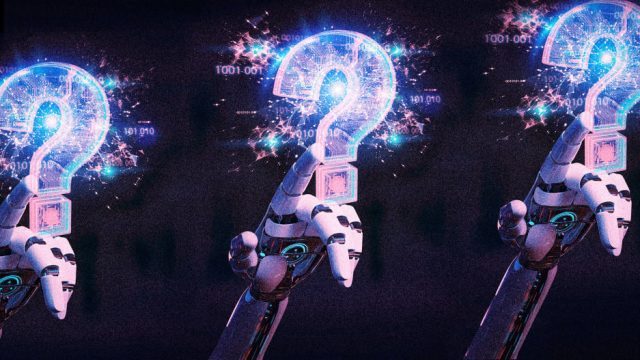- | 9:18 am
The interview questions everyone hates are about to get a makeover thanks to AI

If Gen Z believes they can network effectively without ever meeting in person, and people are comfortable using robots to inform their professional development, maybe it’s finally time for hiring managers to let AI take over when it comes to asking interview questions. Particularly those questions that interviewees have historically given inauthentic responses to, like the dreaded: “What’s your biggest weakness?”
That’s what Modern Hire, a platform for video interviewing and pre-hire assessments, is betting on with the launch of Automated Interview Creator (AIC). Mike Hudy, PhD, chief science officer at Modern Hire, told Fast Company that the tool was developed by a team of Industrial-Occupational (I-O) psychologists who put their heads together to create a library of questions meant to hone in on what a candidate needs to be successful in the position.
On the surface, the questions generated by the tool don’t look all that different from those in a standard behavioral interview. For example:
- Describe a difficult decision you had to make at work. What did you consider? How did you move forward? What was the outcome?
- Describe a situation when you had a lot to accomplish in a short amount of time. How did you ensure everything got done?
- Give an example of a complex problem you have had to solve in the last six months. How did you approach it? What was difficult? What was the solution?
The difference, according to Hudy, is that AIC is meant to work in tandem with Modern Hire’s Automated Interview Scoring (AIS). This is an on-demand video interview feature in which the candidate answers questions and the AI evaluates and scores their replies.
This functionality was also developed by the company’s team of psychologists who, Hudy underscored, are trained not to be biased and to score replies based on science. Their rating system is augmented by natural language processing. The result is that the AIS is able to evaluate candidate responses both accurately and without bias. Hudy noted that only transcripts of the responses are uploaded to the tool so people’s identifying characteristics are not visible.
AIC just came out of a six-month beta test with eight companies. Hudy says it’s an add-on to an interview tech subscription and is priced as a fixed fee based on number of employees. He did admit that the timing couldn’t be better, as many companies are struggling to fill large numbers of open positions and human interviewers can’t move through the process at scale with speed. For some types of roles, he says, the time-to-hire has been reduced from weeks to days.
But he maintains that the tool is designed to get at core competencies and the behaviors it takes to perform well in a specific role. It “enables higher quality hiring decisions, essential for organizations looking to gain an edge,” he says.































